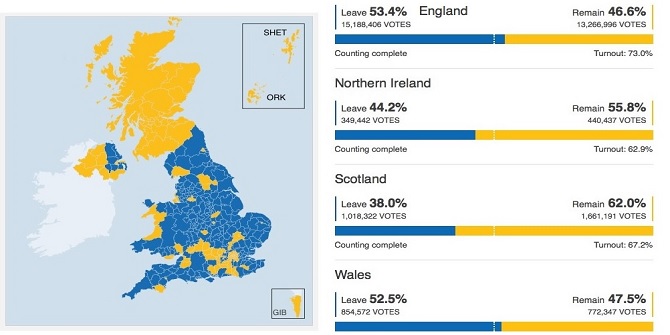Efforts to tackle climate change are often presented in a depoliticised way, with policies framed as technical solutions that benefit the whole of society. Yet as Matthew Paterson explains, many of the issues associated with tackling climate change are deeply political. Drawing on a new book, he illustrates the importance of processes of depoliticisation and repoliticisation to climate policy.
A few weeks ago, Boris Johnson made a characteristic ‘gaffe’. In speaking to reporters after a visit to a windfarm in Scotland, he said that ‘We’ve transitioned away from coal in my lifetime. Thanks to Margaret Thatcher, who closed so many coalmines across the country, we had a big early start and we’re now moving rapidly away from coal all together’.
Unsurprisingly, Johnson was widely criticised for this take. Nicola Sturgeon called it ‘crass and deeply insensitive’. Keir Starmer called it ‘shameful’. MPs from across the region denounced it, even Conservative MPs in ‘red wall’ seats seeking to distance themselves from Johnson’s statement.
The episode has significance however beyond the fray of partisan politics or Johnson’s particular rhetorical ‘style’. It is revealing of the character of climate politics in ways that resonate strongly with various arguments I seek to develop in a new book, In Search of Climate Politics.
First, it illustrates that we need to understand that climate politics is everywhere, and not just when politicians are doing something explicitly because of climate change. In one important sense Johnson is in fact correct (difficult though this might be to admit): one of the central reasons that UK greenhouse emissions are down 38% since 1990, faster than any other industrialised country, is precisely because of Thatcher’s assault on the National Union of Mineworkers in the early 1980s. Cuts from electricity generation are the largest single source of these reductions, over a third of the total. Electricity generation emissions have declined from around 280 Megatonnes of carbon dioxide equivalent (MtCO2e) in 1990 to around 100 MtCO2e in 2019, a cut of around 65%. This is entirely caused by the collapse of coal in electricity supply, which now supplies around 5% of UK electricity.
Thatcher’s assault on coal caused a direct cut in emissions in three ways. It caused a decline in UK coal supply and thus use. Alongside engineering the 1984-5 strike, the Thatcher government also designed electricity privatisation to favour natural gas over coal, triggering a ‘dash for gas’ in the early 1990s. And in the longer term, it has had a deeper structuring effect in that after 1990, there has been no lobby interest with any power to block further transitions away from coal.
The second phase of the coal phaseout started in around 2010 as an effect of the Climate Change Act introduced by Tony Blair’s government, that triggered a rapid shift towards eliminating coal, which is now almost complete. But the political condition of possibility of this was the shift in power relations undermining coal unions and companies within the UK polity. A quick comparative look at Germany is instructive. While also a climate leader in many ways, Germany has been far less successful in engineering a shift away from coal than the UK because coal unions and companies are still relatively powerful.
Opponents of Johnson, such as Sturgeon, rightly pointed out that Thatcher’s political assault on the NUM ‘had zero to do with any concern she had for the planet’. Nevertheless, this provides an important part of what we might call ‘implicit climate politics’. That is, we can look for and understand climate politics to be more or less everywhere, and it is not necessary for actors to talk about climate change explicitly for it to be part of the dynamic. Indeed, since climate change does indeed ‘change everything’, to use Naomi Klein’s apt phrase, it logically follows that climate politics is ‘everywhere’.
Second, climate change has a recurrent dynamic of depoliticisation and repoliticisation. For the most part, actors within climate policy processes seek to depoliticise climate change. That is, they seek to present it as ‘in the common interest’ and treat it as outside the normal collective deliberative decision-making processes and the fray of partisan politics. There are powerful reasons to do so, ranging from the belief that partisan polarisation might undermine climate action (as seems to be happening in the US and Australia, most visibly), to the argument about the short-termism of electoral political cycles in relation to the long-term needs of climate policy, to even occasional calls to abandon democracy completely to address climate change.
Johnson’s quip, and the responses to it, give the lie to the possibility of such depoliticised responses to climate change being stable. They show that climate change and its causes are deeply rooted in intrinsically political conflicts. These conflicts have two intertwined aspects. They are about the material underpinnings of society – labour and energy in particular – and the power relations in those social processes. But they are also generated by the deep cultural attachments to those material underpinnings – our relations to particular forms of work (mining), to particular sorts of energy (coal). Similar accounts could be given of various aspects of our societies that need to be transformed to address climate change – from cars and planes, to beef and dairy, to give just the most obvious examples.
As a consequence, we have recurrent repoliticisation of climate change. From indigenous activists contesting coal and oil extraction in Australia, Canada, or Bolivia, to movements against fracking or for fossil fuel divestment, to Extinction Rebellion and the school strikes, and many others, social movements have targeted powerful fossil fuel corporations as the ‘enemy’ against whom war must be waged, and sought explicitly to open up political struggle over the climate to prevent those corporations from blocking action on climate change.
From an analytical point of view, it is not that depoliticisation is ‘bad’ and repoliticisation is ‘good’. The point is that we must recognise that both are intrinsic to understanding what happens in climate change. With this episode it is to recognise that the way that climate policy has been pursued in the UK, as elsewhere, is as a depoliticised, technocratic exercise of specific policies in the context of the broad ‘carbon budget’ system of the Climate Change Act.
But at the same time, it is to recognise that so far at least, a large chunk of the ‘success’ of UK climate policy is indeed the result of the brutal assault on trade unions in particular in the coal industry under Thatcher, carried out in order to re-establish the dominance of capital over labour in UK politics. And it is to recognise that the technocratic, depoliticised climate policy itself has its limits which generates pressure that is periodically carried forwards by moments of protest and repoliticisation.
Understanding the dynamics of climate politics, whether just for analytical reasons or in order to work out how to improve outcomes in addressing our societies’ deepest contemporary challenge, requires us to think about this tension between and intertwining of de- and repoliticisation.
For more information, see the author’s new book, In Search of Climate Politics (Cambridge University Press, 2021)
Note: This article gives the views of the author, not the position of EUROPP – European Politics and Policy or the London School of Economics. Featured image credit: Simon Dawson / No 10 Downing Street (CC BY-NC-ND 2.0)





